Remembering Those Who Sacrificed
Hi Friends,
Before I get into the nitty-gritty business of what I’ve been up to in the other Washington, I wanted to take a moment to reflect on the powerful day I was able to share with many of you yesterday.
As has become tradition, I was honored to participate in two Memorial Day ceremonies in our region to honor the men and women who died in service to our country - first aboard the USS Turner Joy and then at Ivy Green Cemetery.
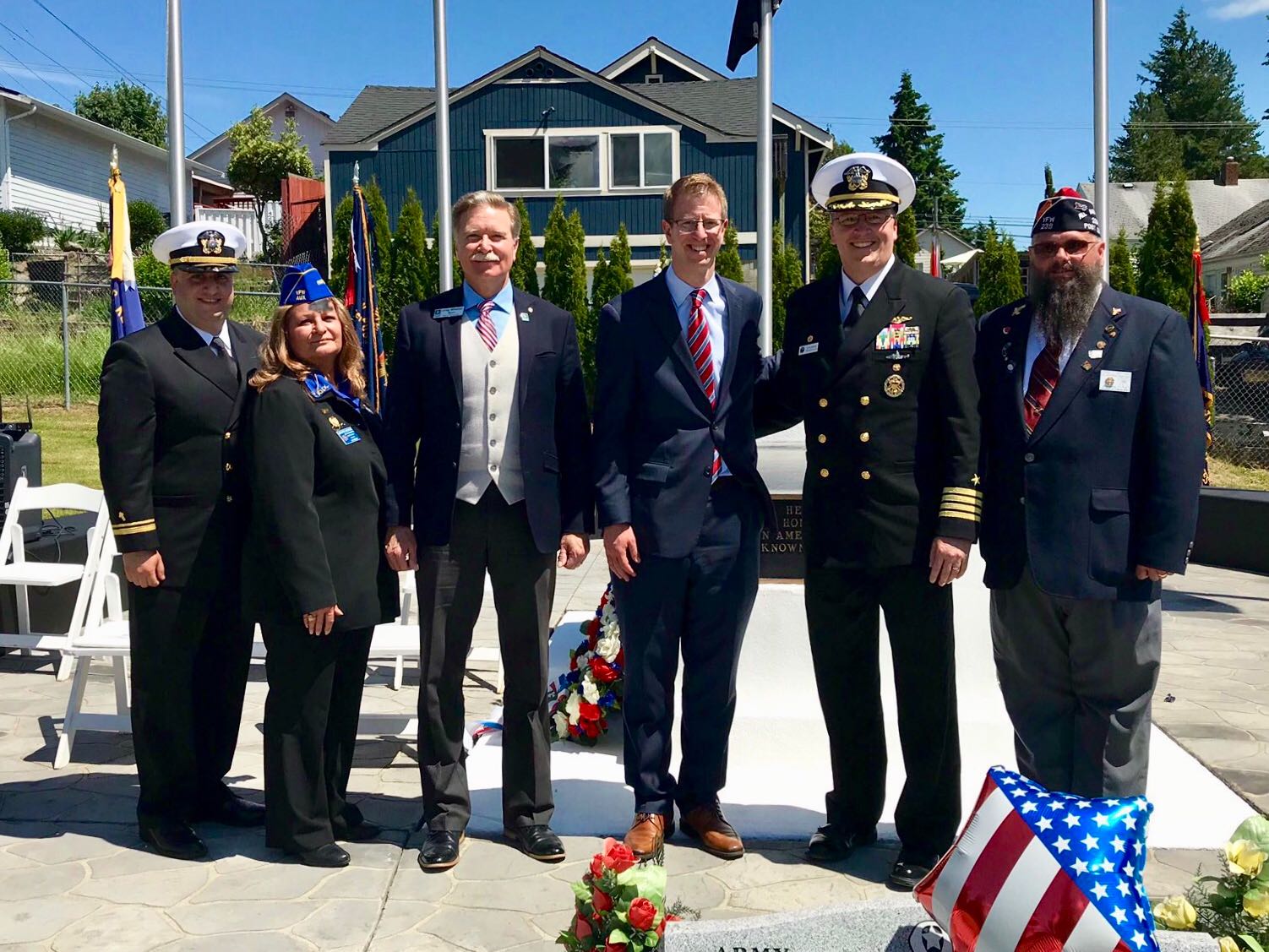
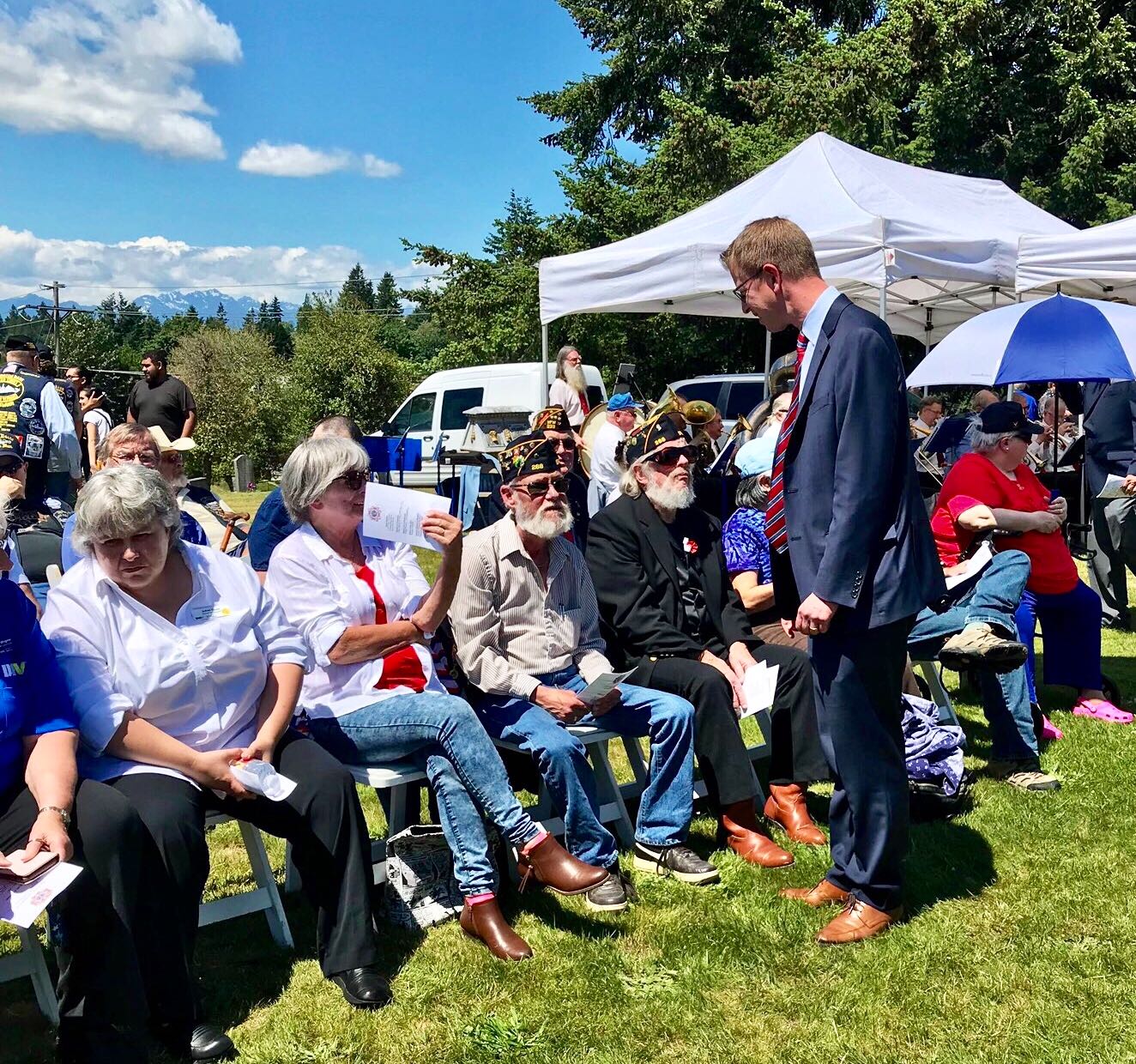
While Memorial Day weekend is often filled with mattress sales, barbecues, and blockbuster movies, it’s important that we remember its solemn meaning. Memorial Day is a day to honor the brave men and women who have lost their lives. President Roosevelt once said, “Those who have long enjoyed such privileges as we enjoy - forget in time that men have died to win them.”
It’s a day to be reminded of what’s expected of each of us as citizens in this great nation. And a day to remember that we have responsibility to those who paid the ultimate price. We must remember them. We must honor them and honor their families who remain with us.
It was great to be able to share this day with so many of you, and I hope each of you was able to take a moment to honor our brave men and women in uniform, and those that have given their lives to ensure our way of life.
Let me start with some updates on issues directly related to those who sacrifice...
Honoring Gold Star Families
Gold Star families know pain and sacrifice all too well. Our nation should have their backs. Unfortunately, that hasn’t always been the case.
In fact, the tax bill passed by Congress and signed by President Trump a couple of years ago actually raised taxes on Gold Star families. You can read more about the problem here. In my view, penalizing Gold Star families is shameful.
Thankfully, last week, the House passed the Gold Star Family Tax Relief Act as part of a broader bill. The Gold Star Family Tax Relieve Act treats military and VA survivor benefits as earned income and alleviates the additional tax burden that has been placed on these families. I was proud to sponsor that bill and support its passage.
Avoiding Unnecessary Military Conflict
Part of the way we honor the sacrifice of those who have died in service is to be conscious of those sacrifices when deciding how to fund our troops and when to authorize the use of military force.
I’ve heard from a number of people who are concerned about the ratcheting up of tensions with Iran. I share that concern. Last week the House received a classified briefing from the Secretary of State, the Secretary of Defense, and others on this subject and, as your representative, I want to make sure that our nation is thoughtful and strategic - not cavalier - about the use of force.
Toward that end, last week I joined over one hundred of my colleagues in sending a letter to President Trump urging him to de-escalate tensions between the United States and Iran. We wrote: “Armed conflict with Iran would endanger the lives of our servicewomen and men, dramatically escalate our national debt, and exacerbate critical national security problems faced by the United States and its closest allies, including jeopardizing the security of Israel and dramatically worsening the regional refugee crisis.”
Beyond that, we pointed out that the President is required to seek Congressional approval for the offensive use of military force.
“Article I of the Constitution, however, places the power to declare war and authorize offensive military force solely with Congress,” the letter states. “The current authorization for the use of military force (AUMF), passed by Congress in 2001, does not provide the authority to engage in military action against Iran.”
Making Congress Work Better for YOU
In my last edition of this newsletter, I mentioned the new committee I am chairing - the Select Committee on the Modernization of Congress (aka “the Select Committee”; aka “the Fix Congress Committee”). We’re working to find solutions to make Congress work better for the American people.
Last week, the Committee voted unanimously to pass its first series of bipartisan recommendations focused on transparency in the legislative branch.
I think we can all agree that giving the American public more access to the inner-workings of Congress is a good thing. So, we passed five recommendations that do just that. Here’s a quick overview of what the recommendations do:
1. Streamline the bill-writing process to make it more efficient and transparent for the American people.
2. Finalize a new system that allows the public to easily track how amendments change bills, and how bills change current law.
3. Make it easier to know who is lobbying Congress and what they’re lobbying for.
4. Develop one-click access to a list of agencies and programs that have expired and need congressional attention.
5. Develop one-click access to see how Members of Congress vote in Committees.
These recommendations are a great first step towards “opening up” Congress to the American public. Providing public access to information is a good idea. Ultimately, it’s YOU, the people who pay for Congress to do its job, so you should be able to access basic information about what happens in DC. Transparency promotes accountability. You can read more on the impacts of the recommendations here.
Supporting Access to Affordable Health Care
Last year, the Trump Administration put forward a policy called “site neutral payment” that reduces reimbursement under Medicare for hospitals with affiliated clinics or care facilities. Unfortunately, this policy will hurt access to care in rural areas - impeding the ability of some hospitals in our region to upgrade medical equipment or hire additional doctors and nurses.
This isn’t some abstract policy change - it has real consequences in our neck of the woods. A couple of weeks ago, I visited the Olympic Medical Center (OMC) in Sequim to talk with patients and hospital leaders about how this policy could have a direct and immediate impact on the quality and availability of care in the region.
We should be expanding healthcare access in our rural communities - not penalizing hospitals like OMC. That’s why I introduced bipartisan legislation called the Protecting Local Access to Care for Everyone Act, to ensure that regional hospitals, like OMC, can continue to make health care more accessible to more people.
I’m also pleased that language was included in the Appropriations bill earlier this month to require the Administration to examine how this new policy will impact sole community health care providers.
The change made last year is a real problem that could negatively impact patient care and jobs, particularly in rural areas where we already face a shortage of care providers. It’s time to fix this.
Connecting Our Communities
Connecting communities to high-speed internet can be a vital tool in the effort to create more economic opportunities for more people in more places. It can lead to new jobs and businesses, empower students by placing new information at their fingertips, and help rural communities get in on the economic growth we’re seeing that’s been largely concentrated in America’s cities.
In our region, too many rural communities are being left behind in our economy. And unfortunately, America’s internet infrastructure doesn’t reach them. That needs to change.
So last week, I introduced bipartisan legislation called the Broadband for All Act to help bridge the digital divide. This bill will create refundable tax credits for local employers and groups of two or more homeowners who team up to make the investments needed to link to broadband service.
I visited with the Mason County Public Utility District 3 last Friday and heard about the terrific FiberHoods effort they are undertaking. The tools laid out in my bill could be an impactful complement to the efforts of the PUD as they work to get networks up to speed to better serve our kids, our businesses, and our every day lives!
.jpg)
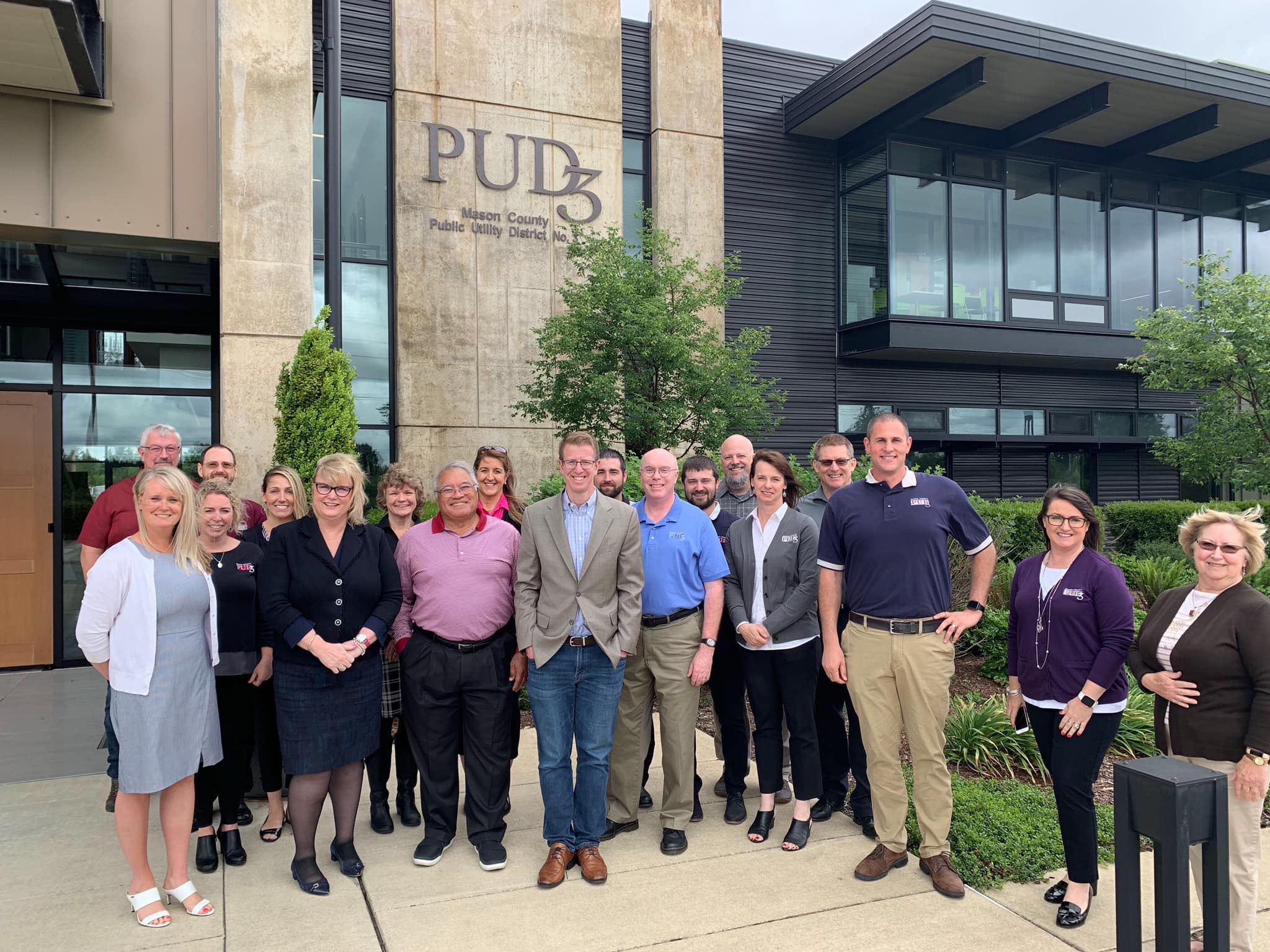
Restoring Puget Sound
Folks across the region know that Puget Sound is an iconic body of water that is critical to the environmental and economic future of Washington state. Generations of our friends and neighbors have built their lives and made livelihoods on the Sound. But if future generations - including my little girls - are going to have those opportunities, we've got to take action now to protect and restore the Sound.
As a member of the Appropriations Committee, I’ve made it a priority to increase the federal government’s support of our efforts to restore the Sound. This is a body of water of national significance, and the cost of restoring it shouldn’t fall solely on the backs of taxpayers in our neck of the woods. With that in mind, I was pleased that the Appropriations Committee passed the Interior & Environment Appropriations bill last week which included an 18% increase in funding to recover the sound.
Securing increased funding to restore the Sound is a big deal if we’re going to recover our salmon populations, if we’re going to ensure future generations can dig for clams, and if we’re going to respect tribal treaty rights.
As co-chair of the Puget Sound Recovery Caucus (along with Rep. Denny Heck), I’ll keep fighting to ensure that the federal government steps up in the continued restoration and clean-up of this vital body of water.
Working For You
When Congress isn’t in DC, I’m busy running from pillar to post around our region. Here’s a few highlights from my most recent travels around the region:
Honoring Those Who Serve
It was an honor to participate in Bremerton’s Armed Forces Day Parade! It was humbling to see the community come together to thank our servicemembers and their families for their sacrifice.
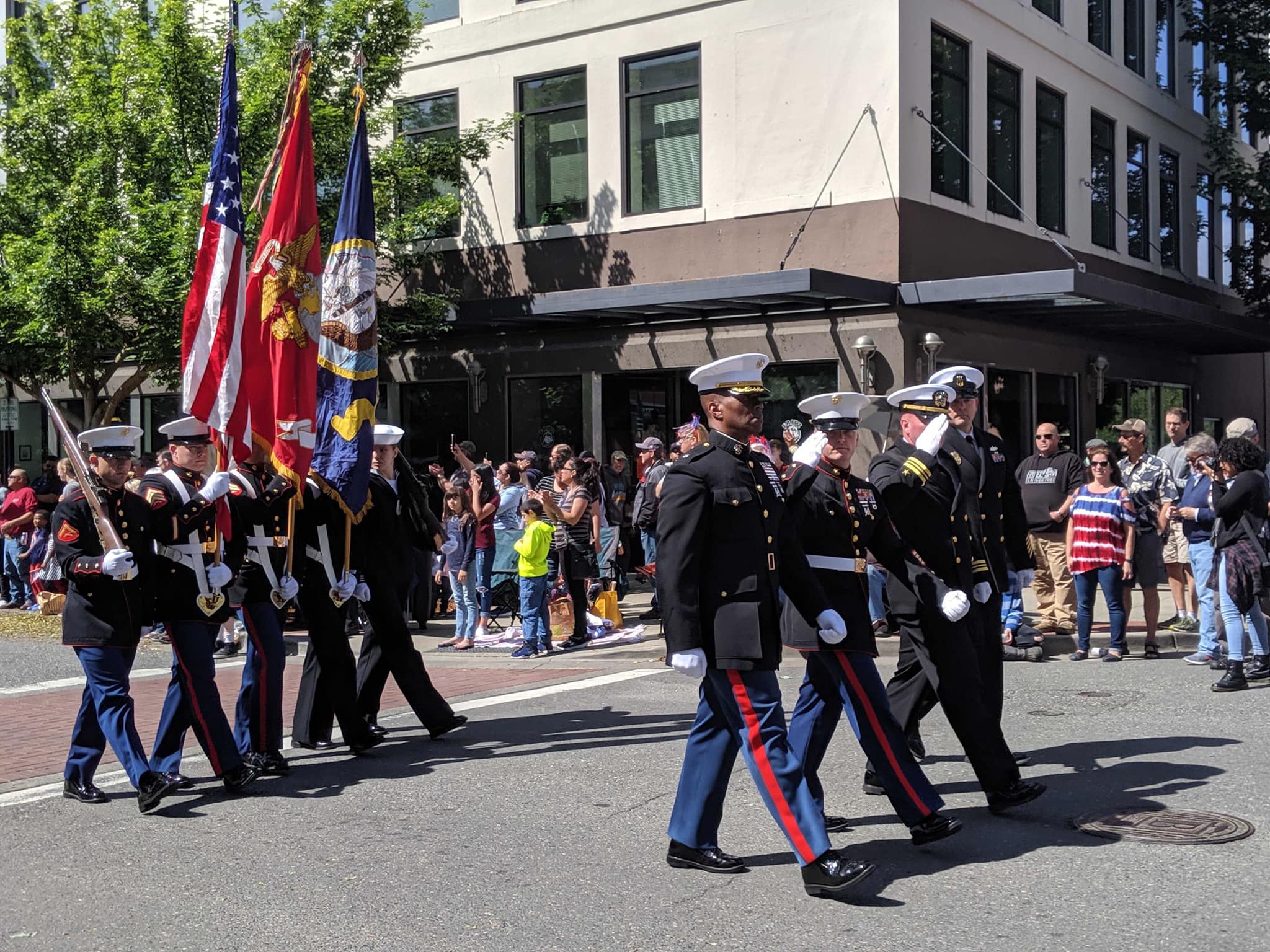
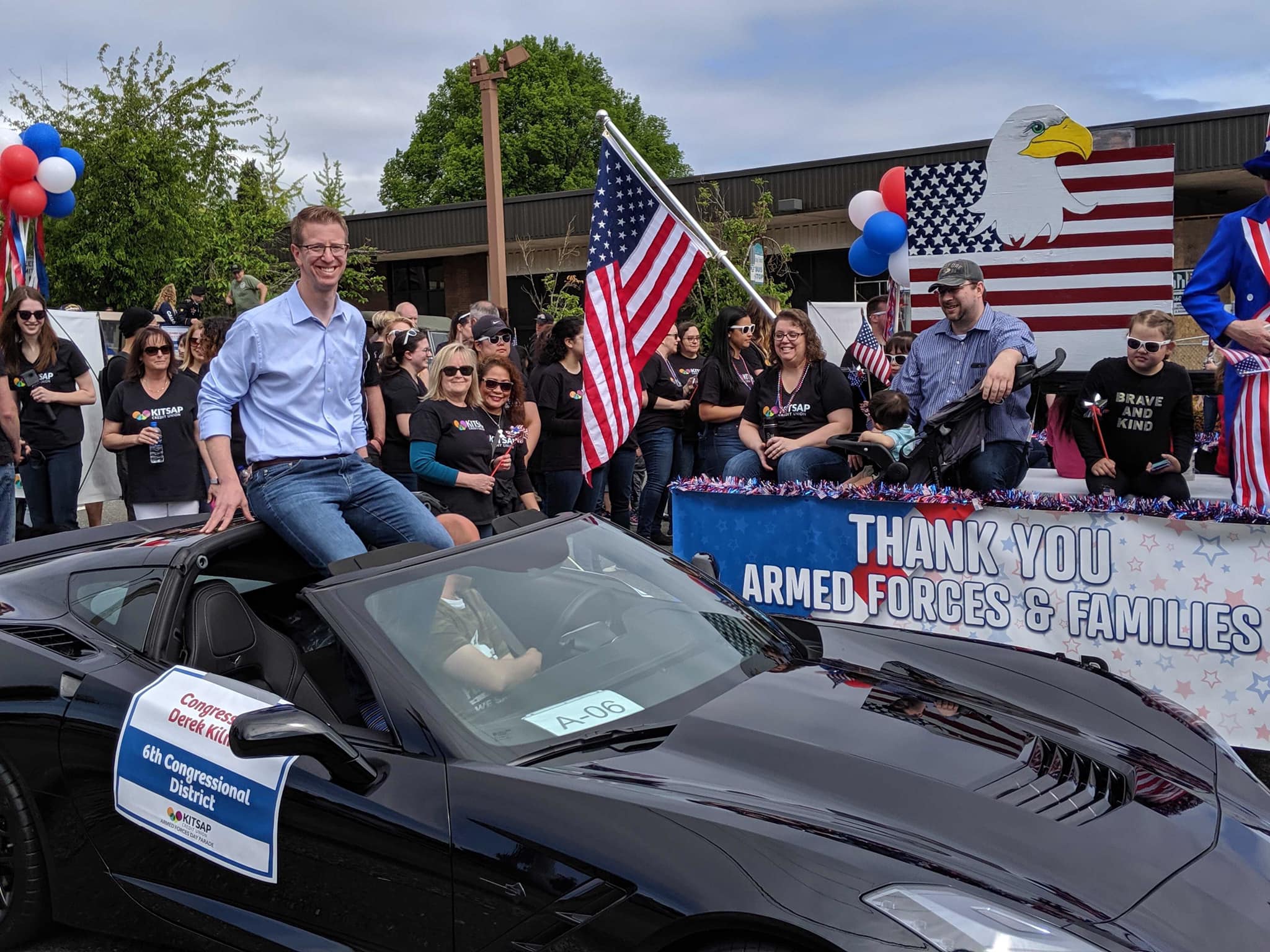
Addressing The Opioid Challenge
When I was in Mason County, I visited with the team at North Mason Regional Fire Authority to learn about the efforts they are undertaking to address the opioid challenge. They are establishing a Quick Response Team to respond to overdose calls, teaming first responders with trained professionals who can help folks through the recovery process. This effort was funded through a grant from the Department of Justice and will hopefully be a real difference-maker.
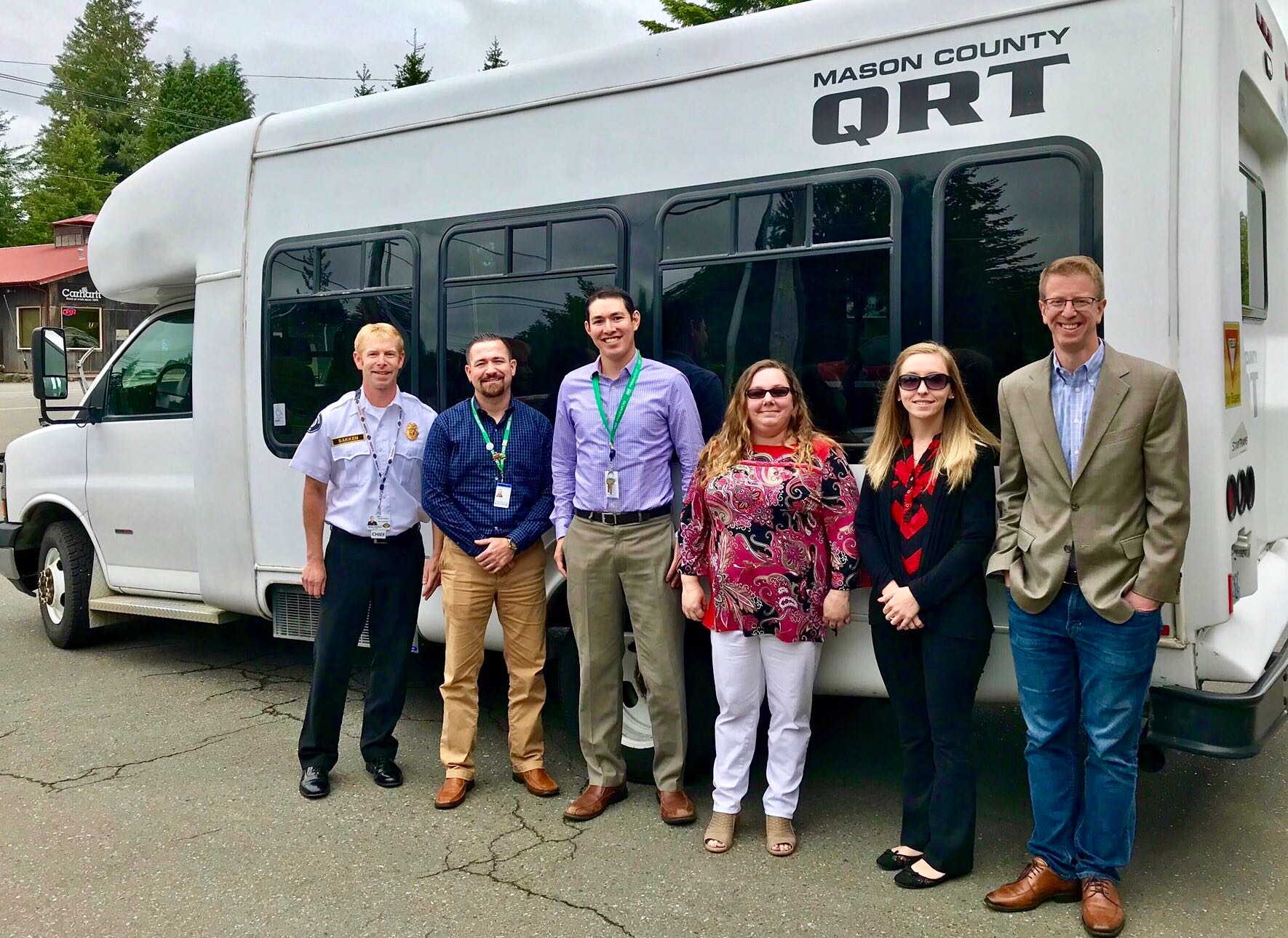
Celebrating Young Artists
Finally, thank you to everyone who participated in the 2019 Congressional Art Competition for Washington’s 6th Congressional District. The artwork submitted this year was really impressive! I want to congratulate Nicholas Shines for winning first-place! His work will be displayed in the tunnel leading to the U.S. Capitol in Washington, D.C., and Nicholas will be invited to visit Washington and see his piece firsthand.
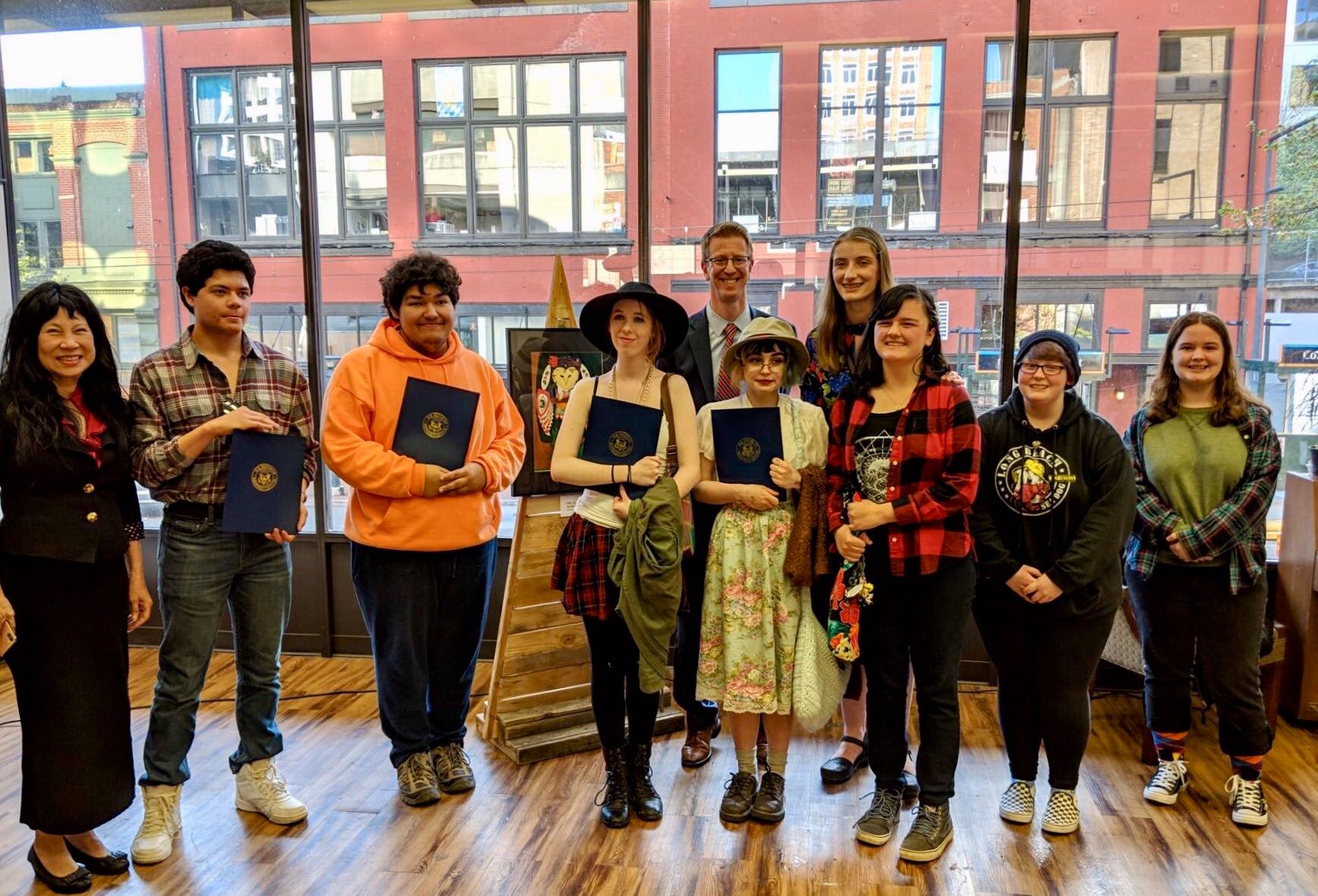
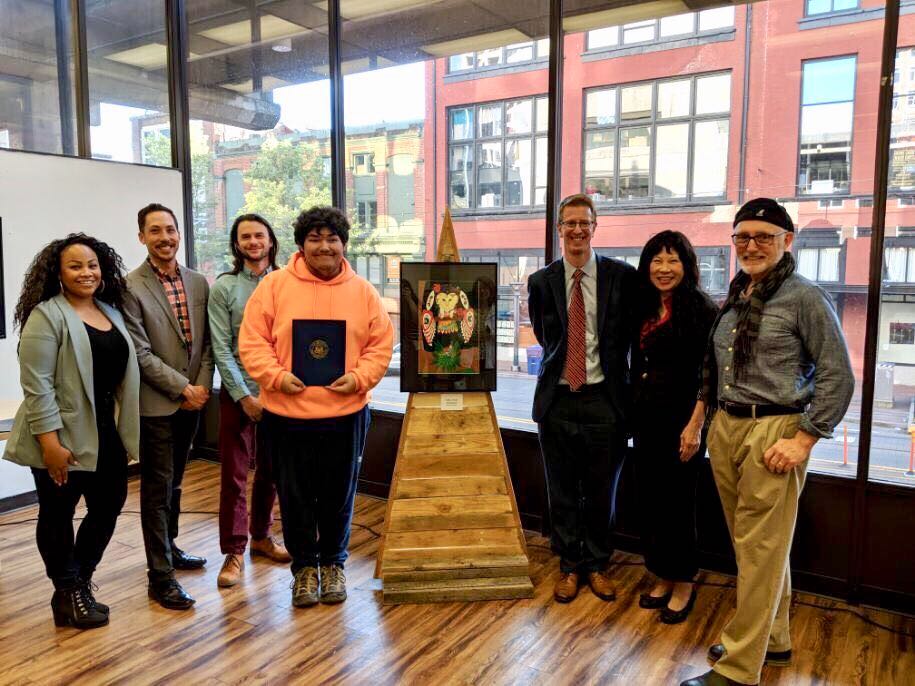
OK... that’s all for this week, folks. As always, I'm honored to represent you.
Derek
